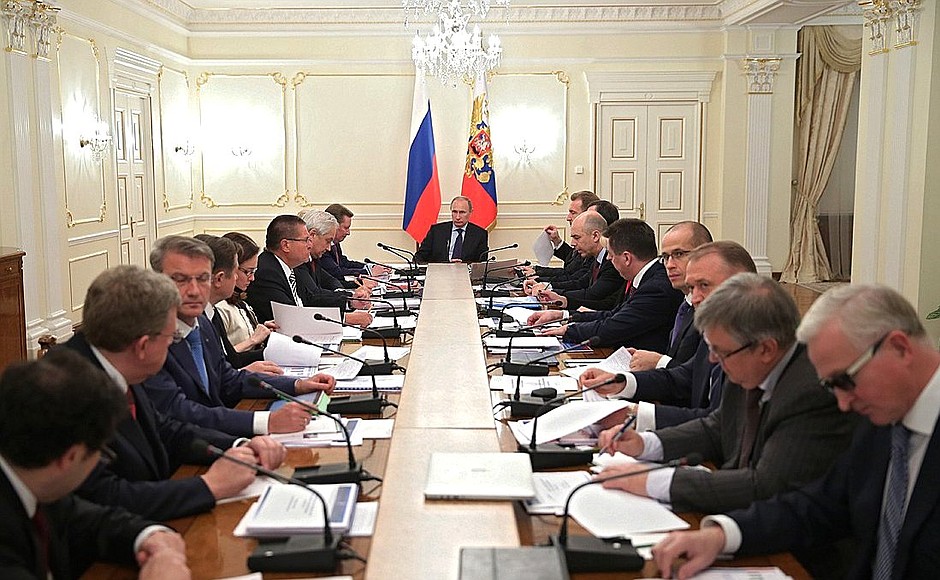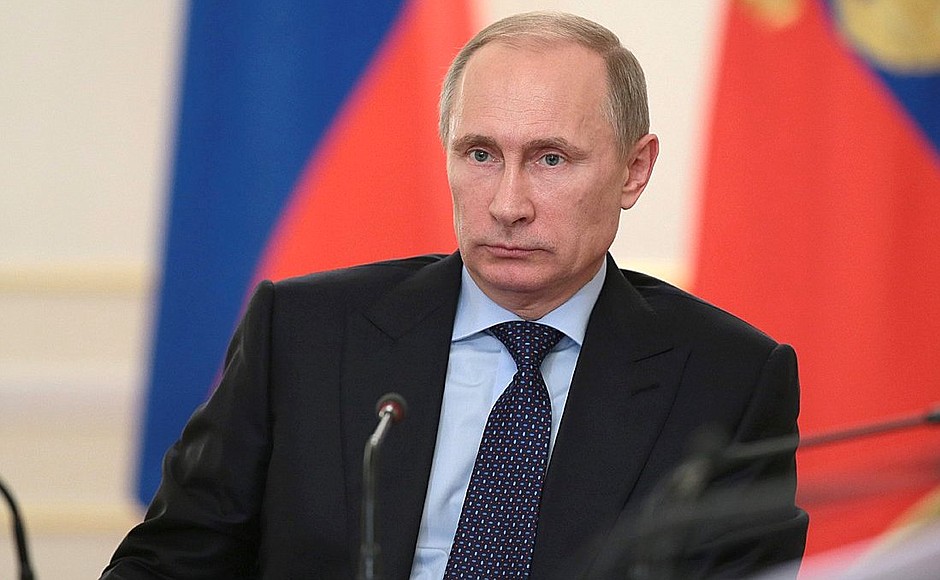The Economic Council Presidium was established by the Presidential Executive Order of October 31, 2013. Its members include representatives of the Presidential Executive Office and the Government, heads of relevant ministries, heads of regions, as well as senior officials from the Accounts Chamber and the Chamber of Commerce, NGOs and banks.
* * *
President of Russia Vladimir Putin: Good afternoon, colleagues,
Today we are holding the first meeting of the Economic Council Presidium. Let me remind you that the Council itself was established last year, in the summer of 2012. After consultations with some of those present, we concluded that we needed to create the Presidium to be able to work more efficiently.
There are a few points I would like to make at the start. Today, in addition to pressing tasks, it is important to look to the horizon and at the substance of our problems, to analyse long-term development issues in the economy, industry and the social sphere, and to predict the risks and opportunities that may arise in the future. Therefore, I would very much like for work on these tasks to be conducted on a regular, systematic basis.
In this regard, we need to further develop expert involvement in elaborating strategic guidelines, suggestions for practical steps that can ensure Russia’s sustainable development, its competitiveness in certain fields, including in the long-term, as I already said. It is precisely for these reasons that we decided to create the Economic Council Presidium.
The Presidium is effectively composed of the people we see here: representatives of the Government of the Russian Federation and senior experts who sometimes hold different and perhaps even opposing views on how to resolve given issues. But strictly speaking, this is the purpose of all expert councils, namely to listen to different opinions and find a middle ground.
During today’s discussions, I consider it important to focus on our economic policy priorities for 2014–2015, taking into account the trends and development challenges for the global and our national economy. We have to determine what factors are needed to ensure that our economy is embarked on a sustainable growth trajectory.
Today I would suggest that we consider a wide range of issues: the job market and training, modernising production via technology and support for exports, developing financial markets and the banking system, creating a favourable investment climate and the conditions to foster the development of small and medium-sized businesses.
Let’s get down to work.
< … >

